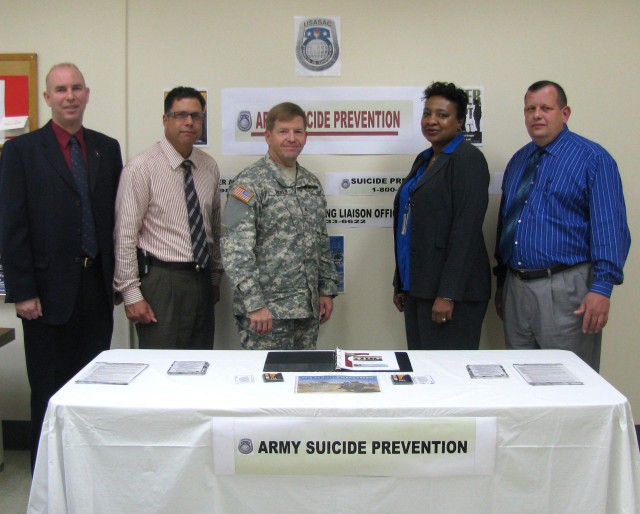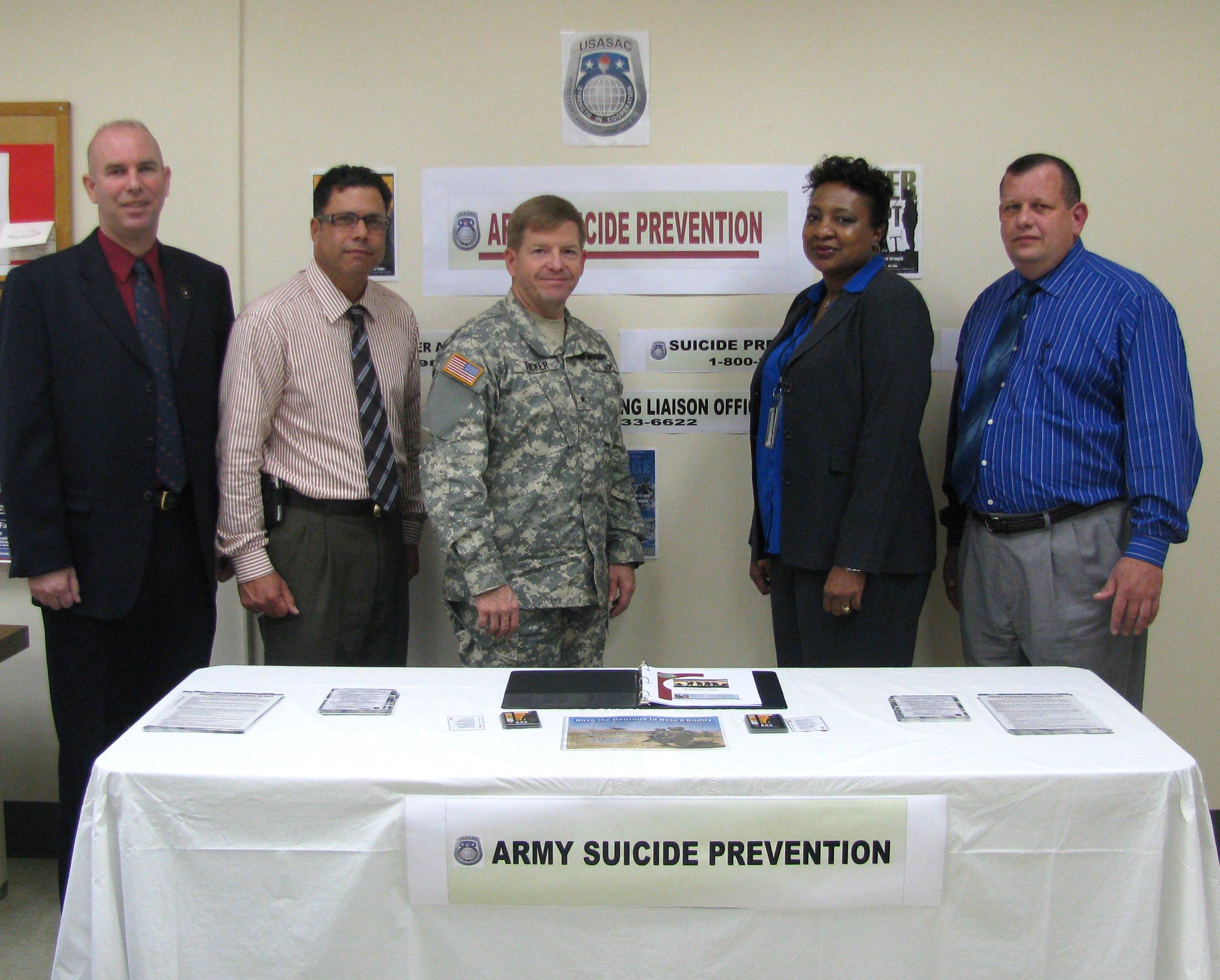The Army has made suicide prevention among Soldiers a top priority. However, predominantly civilian organizations are using the training and information available to educate their work forces as well. The Army Security Assistance Command is moving into phase three of its training plan.
"We want it to be understood that we take it just as seriously as the green-suiters," Gale Fenwick, training manager, said. "We are an Army organization and suicide does happen to civilians, too."
The first phase of training included briefings and presentations featuring the stories of people who have lived through suicide attempts or the pain of a friend, loved one or colleague's death. Some of the faces are instantly recognizable.
"The actor and comedian Drew Carey has a segment where he talks about his own suicide attempt," Fenwick said.
The training program is mandatory for USASAC's active duty and government civilian work force. It is also recommended for the contractors within their walls. Conducting widespread training at four locations, while in the middle of a BRAC move, sounds daunting, Fenwick said.
However, teamwork and support from Redstone has made it go much smoother than could be anticipated.
"We've been working with the Garrison here at Redstone and the AMC Chaplains office," Fenwick said. "The chaplains have really taken the lead. They're going TDY from here to our off-site locations to talk to our people. The Garrison has helped us get the information and materials we need for this."
Phase 2 called for chain training for supervisors and workers. The current phase of training calls for information displays set up within each USASAC location. Once those displays come down, their information will be dispersed throughout the buildings to keep their message at the front of the organization's collective consciousness.
"Our commander Brig. Gen. (Christopher) Tucker has asked that we keep these permanently posted," Fenwick said. "
Fenwick said that it all boils down to reaching those who need help and teaching the rest how to recognize when someone they know is struggling before it becomes too late.
"The whole concept is to make you able to notice the signs and symptoms, that you know what the risk factors are and have the courage to step in," he said.
It is also about removing the last of the stigma associated with mental health issues for Army personnel, both Soldier and civilian.
"Asking for help was seen as a weakness," Fenwick said. "We want people to know that's not true. Knowing there is a problem and reaching out for help takes true strength."
An online version of the training program is being built, so that it is accessible at anytime from anywhere.
"It is a leadership program and we're here to service it," Fenwick said. "It's being led by our general, and we're going to do everything we can to get the message out and make it a success."


Social Sharing